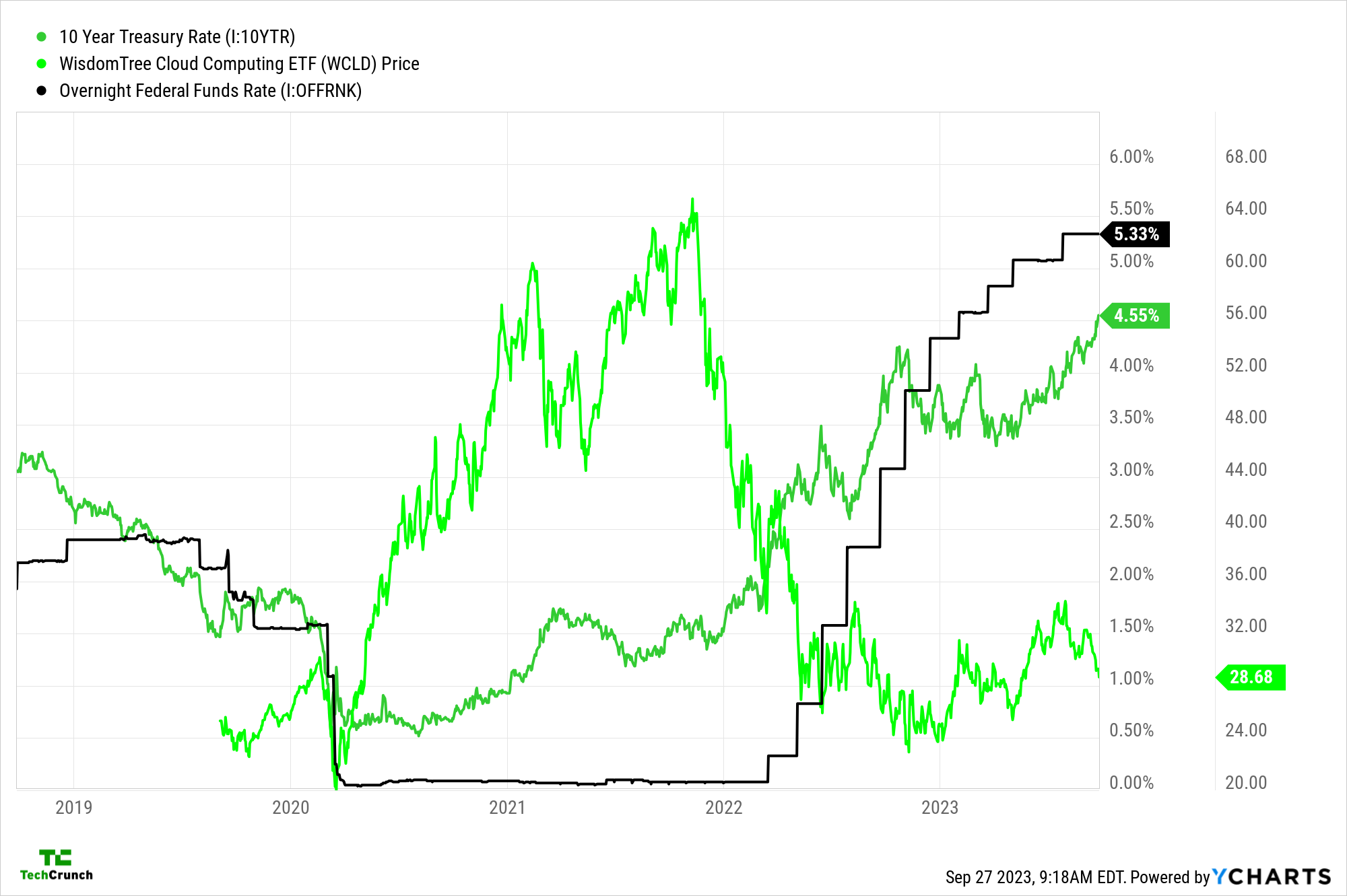For a few months this summer, it seemed that the trend of falling tech valuations was nearing an end. The U.S. pausing interest rate hikes, falling inflation in key markets, and software companies’ slowly rebounding revenue multiples led to a trio of IPOs that were both long in the coming and very welcome in their arrival.
Though Arm, Klaviyo and Instacart all priced their IPOs strongly and traded well in their first few days on the market, their shares have since stalled. Instacart’s stock is now trading below its IPO price, and Klaviyo and Arm have given back much of their earned gains in recent days.
The Exchange explores startups, markets and money.
Read it every morning on TechCrunch+ or get The Exchange newsletter every Saturday.
It’s very possible that we will not see more IPOs for some time. Several factors converged to help these companies go public, but those trends have largely reversed. Another interest rate hike is expected this year, and the 10-year Treasury note’s yield is so high, it’s reached levels we haven’t seen since 2007 — it’s only reasonable, then, to expect low-risk investments to remain attractive or even grow more alluring. That would maintain the pressure on tech stocks, especially those focused on growth instead of profitability.
 This is bad for tech startups, because anything that hampers investors’ enthusiasm for tech stocks eventually affects the private market. Less demand for tech equity could limit IPOs, yes, but it will also make it harder for startups to raise money at all, let alone at attractive prices. And late-stage startups, which are most sensitive to the stock market, will be under even more pressure than they are struggling with already.
This is bad for tech startups, because anything that hampers investors’ enthusiasm for tech stocks eventually affects the private market. Less demand for tech equity could limit IPOs, yes, but it will also make it harder for startups to raise money at all, let alone at attractive prices. And late-stage startups, which are most sensitive to the stock market, will be under even more pressure than they are struggling with already.
Autumn blues
Here’s where we were in June, when things were much sunnier:
New public market data indicates that software stocks are rising to their highest points so far this year. To make it sweeter, the underlying revenue multiples at public companies are expanding as well, especially at the faster growing subset of software companies. . . .
Have all software stocks recovered from a difficult six months of trading, at least when it comes to their multiples? No. However, we can see a clear change in investor demand for shares of companies that are growing at a decent clip or faster.
Market enthusiasm for AI-related products and the revenue they’d drive has helped keep tech prominent this year. It appears, however, that even AI excitement cannot keep some tech companies from losing their gains.
That excerpt from June was partially predicated on the rising values of public software companies, as measured by the Bessemer Cloud Index. At the time, the index was reading above 32.5 points; it closed at 28.67 yesterday, off by around 12%. What’s worse, the index is down by about 18% compared to its 52-week high in mid-July — that’s nearly double the percentage decline an index needs to qualify for a technical correction.
If the 10-year yield keeps rising and we suffer another interest rate hike, there’s precious little on the horizon that seems pipped to help tech stocks regain some of their lost swagger.
Here’s a chart showing the correlation between rising interest rates and the value of software companies listed in the U.S.:

It’s still not as bad as it can get
The good news is that revenue multiples are holding up better than I anticipated, despite tech companies’ stocks suffering and the rampant uncertainty around just how far the U.S. central bank will turn the economy’s screws to limit inflation.
Back in June, Altimeter’s Jamin Ball noted that software companies that were growing between 15% and 30% per year were worth 8.2x their next 12 months’ revenues. That figure rose to 9.6x in July, when we noted that software shares seemed to reach their zenith for the year.
Today, Ball pegs the figures at 8.1x, and faster growing software companies have actually seen their multiples rise. No, it isn’t great that midrange multiples have contracted since the summer, but they are still above where they were in early 2023.
But with another interest rate hike coming, it’s difficult to imagine those multiples reverting to prior vibes, if you will allow me the phrase. More valuation pressure is not out of the picture, and that may limit market appetite for more tech IPOs. For me, that’s an annoyance. For venture investors stuck with illiquid holdings, it’s pretty bad news.































Comment